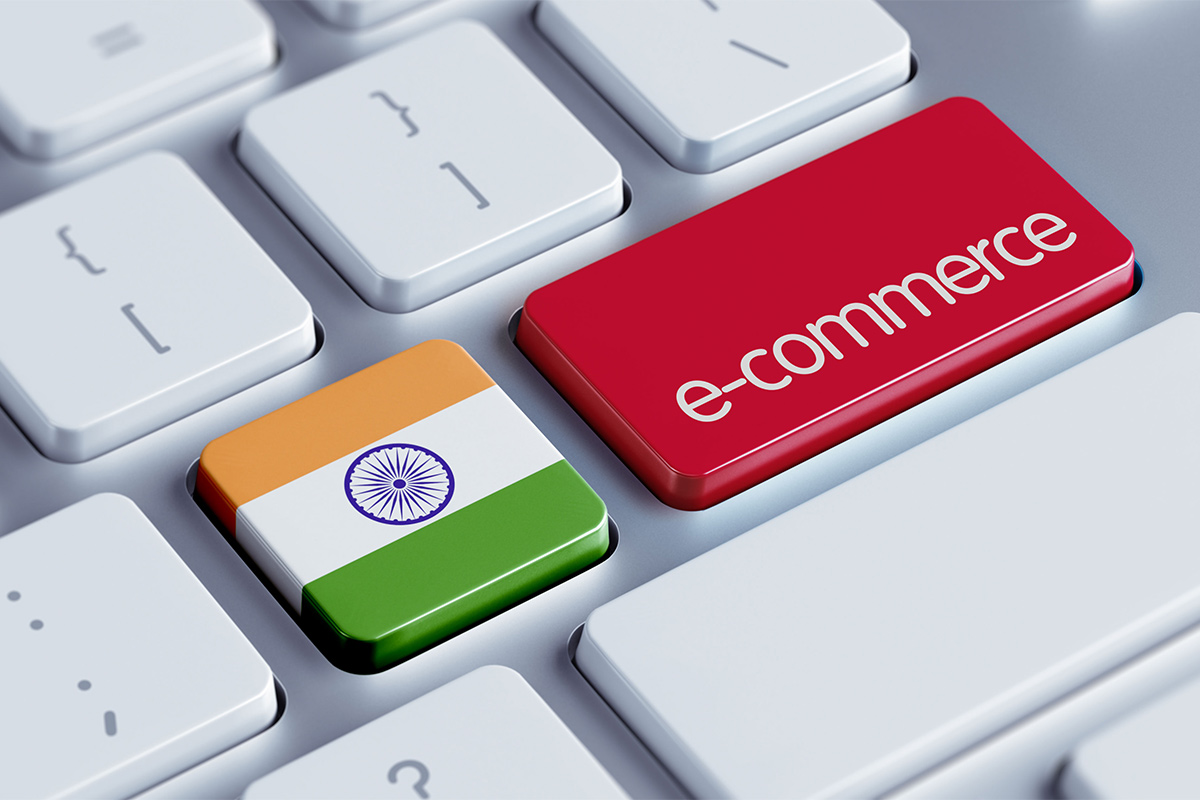NASA mission touches down on Moon aboard Firefly Aerospace lander
The data captured could also benefit humans on Earth by providing insights into how space weather and other cosmic forces impact Earth.
Increasing internet usage, growing adoption of smartphones, and surge in market awareness shall further accelerate the growth of E-commerce in India.

(Photo: iStock)
We have entered a world where the number of choices we have to showcase the business, is almost endless. E-commerce being one of them is constantly being reshaped by new ideas, strategies, trends, and best practices, at times surpassing our ability to grasp the developments. This is where technology steps in to push the business forward. Basically, technology is the backbone of E-commerce.
Increasing internet usage, growing adoption of smartphones, and surge in market awareness shall further accelerate the growth of E-commerce in India. Technology is mighty powerful and E-commerce platforms have to ride on its power if they wish to have a tight grip on customer preferences, their behavior, and purchasing trends and to design the most effective strategy based on this intelligence. For this very purpose, there are plenty of tools for betterment in search, customization, and personalization which are rapidly becoming imperative capabilities for E-commerce success.
Advertisement
Tools like Big Data, AI, and ML have the capability to empower local businesses and transform them to compete in a highly competitive world.
Advertisement
For instance, the internet is quickly turning into a living entity, giving people directions, comparing shops online before jumping to the retail space directly, suggesting dinner ideas, proposing options like zooming into high-quality visuals to help customers understand the product in a clear way before hitting the buy button. It helps in bringing everything in a single place. Billions of interconnected networks, reliable mobile internet experiences, social interactions happening over smartphones and tablets, rolling out of 4G connectivity in mobile networks, all these factors are responsible for giving rise to “Mobile Commerce”, an extended version of e-commerce.
The ubiquitous hurried and fast-paced lifestyle has made humans optimize time and energy in a smarter way like creating a grocery list just by dictating everything in words or even placing online orders for them, recommending supplementary products which go well with the shopper’s choice, and series of other possibilities. Interesting, right? Everything is linked with Artificial Intelligence or AI. Gartner predicts that around 80 percent of all customer interactions will be regulated by AI technology without any interference by human agents in the near future. Due to significant advancements in e-commerce, AI tools retailers are increasingly turning towards chatbots, smart logistics, recommendation engines, and digital assistants to provide 24×7 support to their online customers. The basic role of AI in E-commerce boils down to intelligent product recommendation which is impacting customer choices by utilizing knowledge of previous purchases, searched products, and online browsing habits. Additionally, apart from these innovations, AI-powered solutions are also leveraging data analytics tools, supply chain automation, omnichannel solutions, email marketing, and Inventory management.
In developing countries like India, access to Electronic Payment Services (EPS) system through mobile money and other financial services are critical in allowing connection to the international market for micro, small and medium-sized enterprises (SMEs). Lately, convenience is a requisite value proposition associated with E-commerce. EPS is what enables small and giant merchants to accept multiple payment types in real life. The commencement in contactless payment options such as Apple pay, Google wallet, pay pal and square wallet security levels have also reached an all-time high. Additionally, EPS facilitates faster order processing and delivery, which caters for higher efficiency in both Businesses to Business (B2B) and Business to Consumer (B2C) models.
Technology will never stop evolving and the next big thing will always be out there. Technology will never stop evolving and the next big thing will always be out there. As the digital consumer experience is ever-changing so are the options. Digital supply chain, demand-driven forecasting, personalization plugins and augmented reality drove massive changes in e-commerce experiences and they act as the fuel behind the e-commerce industry’s evolution and growth. Greater digital interactions will generate more data sets, and the E-commerce industry will continue to propel by emerging technologies. As a result, more and more customers will experience well-organized solutions down their way.
In the race of being tech savvy, we often forget the importance of technology needed for the local market that do not have sufficient high-tech knowledge or financial backup. Only when everyone around us are empowered by technology, we will head towards a technological revolution.
(Lakshmi Prabhala, Founder, LMO)
Advertisement